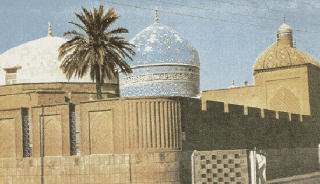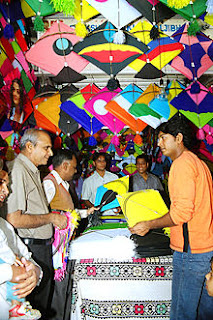Piran ne Peer Ghaus e Azam Dastageer, ra,
Piran ne Peer Ghaus ul Azam Dastageer, RA, the Great defender and the leader of the saints was born in Gilan, Persia Iran, in 470 Hijri, ( 1077 AD ). He was of pious parents of Hassani lineage. He was Syed from both, the father as well as the mother side. His father Syed Abu Saleh, was an illustrious and God fearing man. Once he was engrossed in meditation by the bank of a river he saw an apple floating down the river. He picked it up and ate it. It struck to him that he ate the apple without paying for it so he set out in search of the owner on the bank of the river and at last reached the owner of the orchard; Abdullah Somai, whom he requested to tell him the price of the apple. Abdullah Somai replied that it was an expensive thing. Syed Abu Saleh replied that he had not much by way of worldly material, yet he could serve him for its compensation. Abdullah Somai then asked him to work for a year in the orchard. In the course of time the duration was extended several times. In the end Abdullah Somai admitted that he had served him in excess of the price and desired to reward him. Abu Saleh hesitated in accepting it but when Abdullah Somai persisted, he relented. He said he had a daughter, blind of eyes, handicapped of hands and feet and wanted to give her in marriage to him. In this way Abdullah Somai got his daughter, Syeda Fatima, married to him. To his astonishment, Abu Saleh found her wondrously beautiful and wholesome. He complained to his father in law that he found her exactly the opposite to what he had described her. Abdullah Somai insisted on the truthfulness of his statement, and said. she was blind because she had not seen a man who could marry her. She was mute because she had not uttered a word repugnant to the Shari'aa. She was deaf because she had not heard anything inconsistent with the Shari'aa. She was handicapped of hand and feet because she had never moved in the direction of evil.
The great man died soon after the marrige and the little orphan was reared up by his mother and under the benevolent care of his grand father, Abdullah Somai.
Childhood: During infancy he never sucked milk during the day and had it after it was dark. When hungry he never cried like other children but remained composed in the cradle. As he was an orphan his initial education started under the supervision of his mother. Having completed, his primary education he sought his mother's permission to go to Baghdad for higher education. His mother was old still she allowed him to go and thus he set out to Baghdad in the year 488 Hijri.
Some chroniclers say he was 14 when he set out to Baghdad. His mother sewed 40 gold Dinars ( coins ) in his quilt so that he might spend as he needed. The dacoits struck the caravan on the way, and looted all the travelers of their belongings and wealth. They asked him what he had. He replied that he had 40 gold Dinars ( coin ). The dacoits took his reply as a joke and took him to their cheiftain. The Chief of the dacoits asked him the same question and he again replied that he had 40 gold coins on him. He demanded that he should be shown the Dinars as there was no appaent trace. Abdul Quader tore away the quilt and produced the Dinars to the Chief. He was surprised and impressed and asked him why he had given the hidden Dinars. He could have kept them and the dacoits could have never known about them. The boy replied that he was travelling to Baghdad to receive education and his mother had instructed him to speak the truth always and so he had done it. This left the Chief with a deep effect, and he gave up his profession of looting.
Higher Education: He received lessons on Islamic Jurisprudence form Abu Saeed Makhzoomi, Tradition from Abu Bakr bin Muzaffar, and Commentary from the renowned Commentator, Abu Muhammad Jafar. Having thus qualified he engaged himself in the field of teaching.
Teaching: He became a teacher and took to teaching in the seminary of his teacher, Qazi Abu-Said-Mubarak. Soon he became popular with his pupils. His fame spread far and nears. Pupils flocked to him. In the morning he taught on Tradition and Commentary, and in the afternoon he held discourse on mysticism, and the virtues of the Holy Qur'an. The number of students grown so much that the seminary could no more hold them. He, therefore, decided to extend the premises of the seminary. The students and the people willingly came forward with their whole hearted contributions, and the construction started. The campus buildings were ready in 528 Hijri and thereafter it became known as Madarsa-e Quadriya.
Judicial Sentences and Ermons: The Shaikh ( The Great Defender ), besides teaching engaged himself in Judicial Sentences and Sermons in the service of the Religion; delivered his sermons three times a week. His oratory drew multitude of crowds, which sometimes exceeded sixty or seventy thousand in bare numbers.
Truthfulness & Fearlessness: The Shaikh was truthful and fearless. The Caliph Al-Muqtazi once appointed Ibn-e Marjam the Qazi. Ibn-e Marjam was known for his cruelties. The people were panicked, and approached the Sheikh. He addressed the Caliph from the pulpit that he had posted a man as a Qazi who was extremely cruel. When he reached before his Creator on the last day what excuse he would put forward for appointing him. God is merciful and find to the people. The Caliph trembled and at once sacked Ibne Marjam form the post.
Generosity: Whatever Presents, valuables his followers or disciples offered him he distributed them among the poor and the needy and gave precedence to other's needs to this own. None returned empty handed from his gate. He was therefore, called leader of the saints, the Helper, the Great defender, and Darling of God. God filled his heart with profound love for the poor, the needy, and the helpless.
Propagation of Islam: He propagated Islam through his writings and speeches and remained aloof from the government and politics. He, therefore, ruled over the hearts of the people. The kings were envious of him. Not only did he propagate Islam through pen and word of mouth but saved also the Muslims from complete extinction. The world so remembers him with the little, Mohyyuddin, the life-giver.
Death: He busied himself for forty years in the service of the Faith from 521 to 561 Hijri During this period hundreds embarrassed Islam because of him and organized several teams to go abroad for the purpose. He came to India in 1128 AD. And stayed at Multan. His Qadriya order still exists through out India. He died 11, Rabi ul awwal, 561 Hijri ( 1168 AD ), at the age of 91. His shrine is in the Bughdad, Iraq.
His Sayings:
Knowledge is useless without action.
Be a doer and not an illiterate deliberately. One who knows and acts accordingly is a viceroy of Allah.
Lo! On one who committed the Holy Quran to memory but did not follow it.
Allah is such a name that eases every difficulty and relieves of all kind of worries and grieves and this is a great name.
Whoever keeps Allah his friend, he is under His protection and passes his life under His benign benevolence.
Beggar is the one who perpetually engages himself in the prayer and in contemplation. He is truthful, capacious, and courageous. He regards his 'self' the meanest; what he does not know, tries to know; teaches the ignorant, and advises the careless.
The faithful is one, who seeks lawful living, and is not a fatalist. If succeeds in getting a job, he shall get lawful living and compensation for search of a living.
For patience he said; the faithful perseveres in difficulty and distress and does not forsake the Shairah; submits to the will of Allah; is not perturbed from poverty and grief but remains composed, patient, and thankful.
The patience of a beggar as against the thankfulness of a rich man, and the beggar's thankfulness as against the rich man's patience is larger.
The war of the inner is better than that of the outer.
Don't complain of Allah's slave ( men ).
Think great so long as you live.
Books: He was a great speaker, lecturer and writer of his time. He wrote books of immense depth on the subjects he wrote in the defense and service of Islam.
1- Ghansat ul Tal-e been, is on the orders from the Tradition.
2- Mansharah ul Ghaib ( Revelation of the Unseen )deals with mysticism.
3- Fateh Rabbani is the collection of his sermons and addresses.
4- Maktoob-e Subhani comprises of his letters.
In poetry he wrote fourteen moving odes in Persian which is a great work.




Comments
Post a Comment